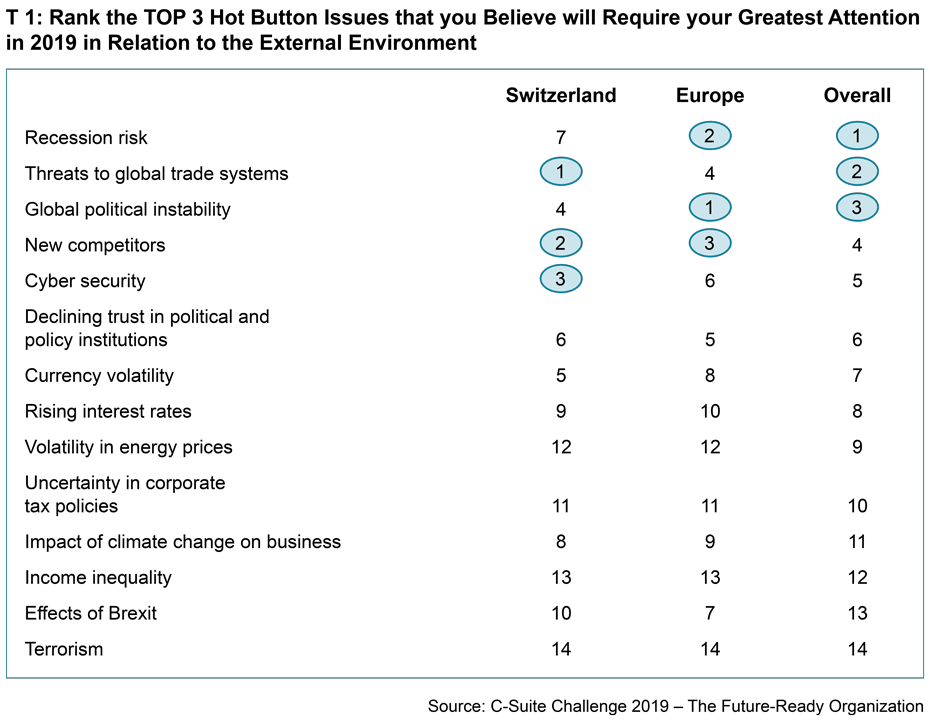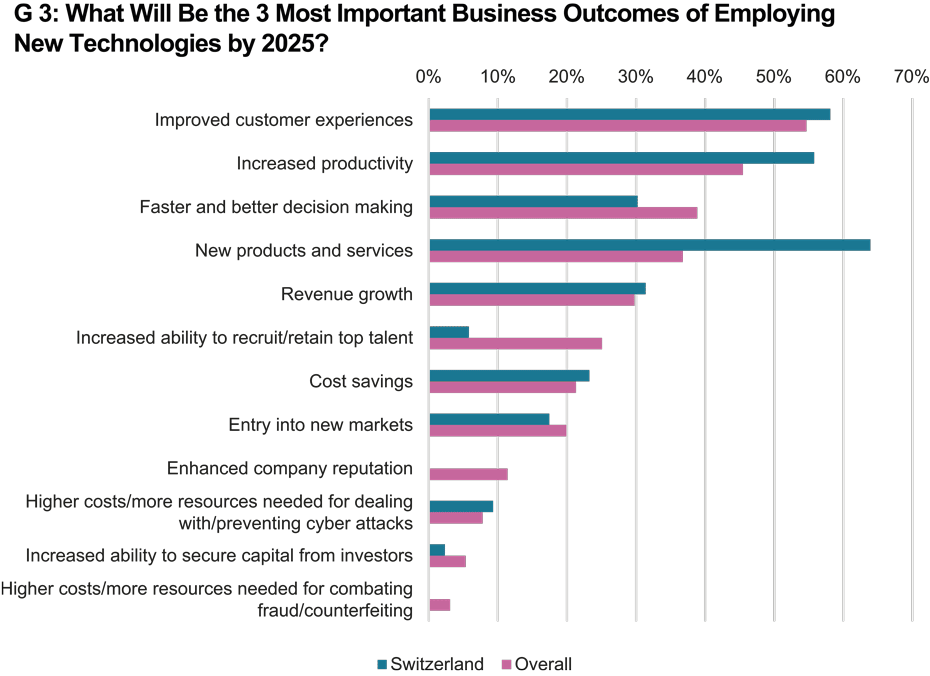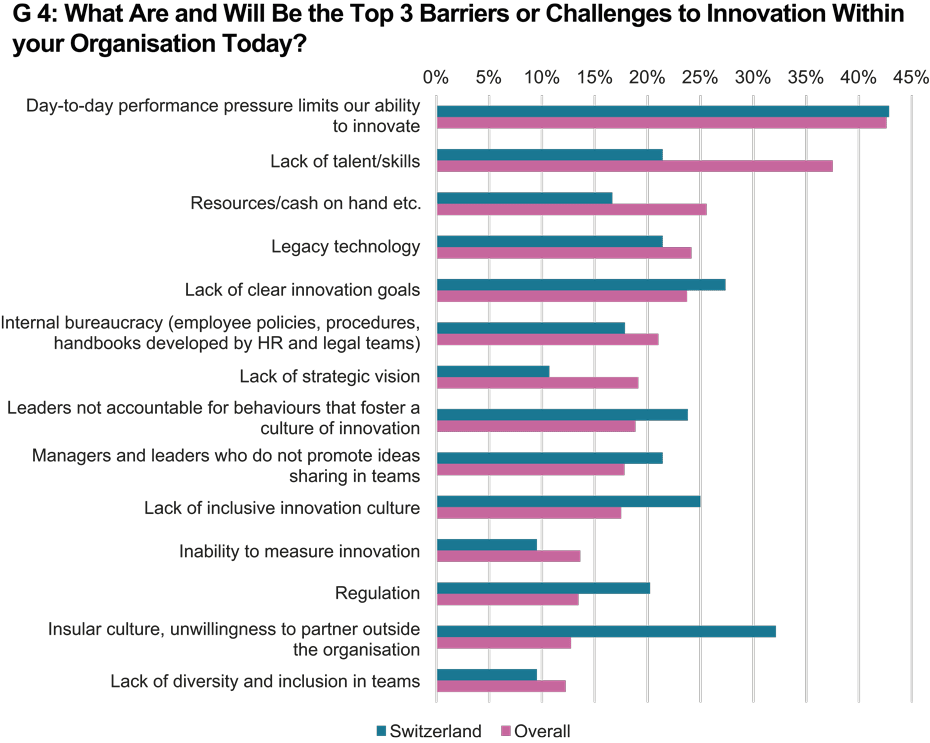What Swiss Executives Worry about Most
KOF Bulletin
KOF has been involved in a study investigating the concerns and future hopes of managers worldwide. The results show differences between Swiss and international executives, for instance where the impact of new technologies on businesses is concerned.
Enterprises are constantly evolving: they grow, split up or introduce new products, processes and technologies. In addition, they are facing fundamental paradigm shifts today. The way we work and the way companies create values is changing substantially.
These changes are also reflected by economic performance figures. Various research institutes assume that global economic growth may have reached a preliminary peak. On top of this, the political situation has become more volatile in many countries.
Thus, it is not surprising that the risk of recession is currently the greatest worry for managers worldwide. This is the result of a survey conducted by the “Conference Board” organisation in conjunction with KOF among around 1,400 executives (so-called ‘C-levels’: CEO, CFO, COO, CDO etc.). Threats to the global trade systems and political instability at the global level are further worries occupying executives (see T 1).

Global trade systems cause concern
87 of the respondents are from Switzerland. Analysis of the responses reveals four major differences compared to their international colleagues. The Swiss respondents differ in their assessment of the top risks. In response to the question which problems would require their greatest attention in 2019, the majority among them stated threats to the global trade systems. In 2nd place was the fear of new competitors, followed by cyber security in 3rd place. The biggest worry among international executives – the risk of recession – occupies 7th place among Swiss executives. By contrast, Swiss managers consider volatility of the local currency to be a bigger problem.
In addition, Swiss executives have a greater interest in climate change. For them the impact of climate change on their businesses is a more pressing subject than for their international colleagues (place 8 vs. place 11). Sustainability also plays a bigger role for the Swiss respondents. To them subjects like the recycling economy or the social debate have greater relevance for the future.
Furthermore, Swiss managers have different assumptions of about the changes new technologies will bring to their companies. 64% expect that the changes will result in new products and services – compared to under 40% in the case of their international colleagues (see G 3). Swiss executives state more frequently that they hope for higher productivity, higher revenues and lower costs. By contrast, international managers place greater focus on progress in the fields of decision-making or their ability to recruit/retain staff.

The responses to the question about the three top barriers to innovation within the companies also vary (see G 4). All respondents worldwide believe that day-to-day performance pressure is the biggest barrier. Lack of talent and resources are also frequently mentioned at the international level. However, Swiss managers appear to suffer less from such a lack. Instead, they feel more restrained by a narrow-minded culture with little focus on integration.

Further information on the Swiss results of the survey can be found here.
Further information on the "C-Suite Challenge 2019" and the global results can be found external pageherecall_made.
About the “C-Suite Challenge 2019”
In the context of “The Conference Board CEO Challenge”, CEOs around the world have been surveyed on the top challenges they face and the strategies they employ to meet them since 1999. In 2017, the survey of management executives was extended to include so-called “C-suites”. A total of 1,426 international managers took part in the October 2018 survey, 87 of them from Switzerland. The “Conference Board” think-tank conducted the survey in collaboration with 14 international institutes, including the KOF Swiss Economic Institute.
Contact
KOF Konjunkturforschungsstelle
Leonhardstrasse 21
8092
Zürich
Switzerland
